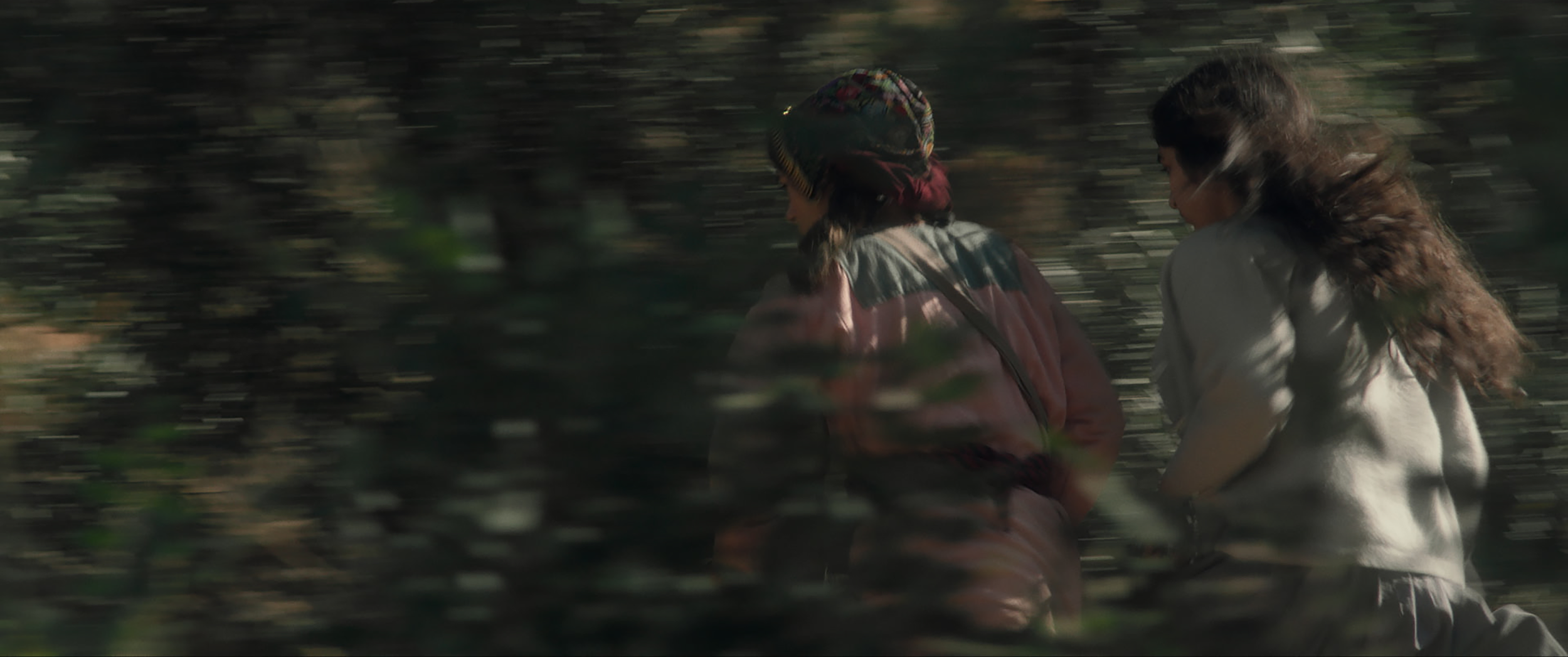Darin J. Sallam’s debut feature film shares “our side of the narrative” of the Palestinian Nakba
Farha, 2021. Images courtesy of Darin J. Sallam.
Words and interview by Dalia Al-Dujaili
As this year’s Safar Film Festival gets underway, we speak to the award-winning Jordanian director on how she tried to epitomise Palestinian joy coupled with imposing social restrictions in her debut feature Farha, which tells the story of a little girl in 1948 Palestine who survives the Nakba and is concealed in a cupboard by her father to protect her from pending danger.
Hi Darin! Congratulations on the UK premier of Farha at this year’s Safar Film Festival. What was the inspiration for the film?
There was a young Palestinian girl named “Radieh” who survived the Palestinian Nakba in 1948 and made it to Syria, where she shared her story with a young Syrian girl. That Syrian girl grew up and got married and shared the story of Radieh with her daughter, and this daughter happened to be me. When I heard this incredible story about this girl and how she got locked up in the pantry by her father, I kept thinking about her and how she felt inside, especially that I am claustrophobic. I grew up and the story stayed with me, and when I became a film director, I decided that this will be my debut feature and the character’s name would be Farha, which means Joy, because that’s how I felt Palestine was before 1948: full of life, culture, heritage, civilisation and many other beautiful things based on the oral history I heard and the archival photos I saw.
Talk me through the writing process.
This setup of a girl locked up in a room was very attractive and challenging to me as a director, so the writer in me challenged the director, and I decided to have most of the film inside this room where the camera never leaves it. The first draft was written in 2016 and the film was shot in 2019 but I didn’t spend all of this time writing, I think it was the 7th draft of the script that we shot. I am not the type of director that treats the script as a bible, I feel that writing is just a process to help me create the world of the story and the film so I can immerse myself in it, leading to the director in me always rebelling against the writer in me. I always give myself the space and the freedom of being inspired by the moment while on set, and especially in a film like FARHA and its setup, as a director I was always trying to edit the scenes in my head and rewrite on the spot while shooting whenever I feel it.
Did you draw on any personal experiences?
As mentioned earlier, I am claustrophobic, which made me feel with Farha. But also her character, many people that watched the film and met me felt that the character has many traits like me. Without even knowing, I think it was natural to inject a part of me into the character as any writer and/or director would.
Tell me how it feels to have the film premier at SAFAR; what is special about SAFAR for you?
Having FARHA as opening film in its UK Premiere has a huge significance for me. I am thrilled that it will screen to the UK audience for the first time through SAFAR Film Festival whose mission is to share Cinema from the Arab world to promote further understanding of our stories in the UK especially that Farha will screen in more than one city across the country. Needless to mention that Farha brings a story from Palestine 1948 to the big screen, something which is marginalised or almost absent from Arab Cinema, in addition to the importance of sharing our side of the narrative when it comes to that fateful year.
What does the landscape of Arab film look like right now, is it an exciting time to be an Arab filmmaker?
It is definitely a very exciting time for Arab cinema, and our stories are reaching all over the world much more widely now. I can’t wait to share more stories from our part of the world.
Farha screens as part of the SAFAR Film Festival 1-17 July and will screen at CCA Glasgow on 15 July. The Festival runs nationwide and is accompanied by a pay-what-you-can online programme. Find out more at safarfilmfestival.co.uk.


